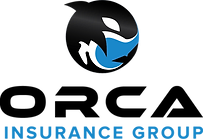Commercial Auto insurance

Commercial auto insurance can cover a combination of vehicle types (trucks, cars) and drivers, as well as some types of motorized equipment.It provides for bodily injury liability and property damage while operating a company automobile, medical payments or Personal Injury Protection (PIP) for the driver and passengers of the policyholder’s car. Injuries or damage to someone else are also covered.
What Is Hired/Non-owned Auto Liability? Are you renting cars or are your employees using their own vehicles? This particular coverage provides business insurance coverage for certain liabilities arising from the use of a rented or leased vehicle (hired), or a non-owned vehicle (employee using their own vehicle on company business). Oftentimes this coverage can be added inexpensively to a business auto policy, or in some cases, a general liability policy.
Use of Personal Vehicles: Insurance policies for privately owned vehicles may not cover damage to your privately owned car or truck when it is used for business, even home cosmetics, jewelry sales or a pizza delivery business.
What Factors Affects Commercial
Auto Insurance Prices / Premium?
Industry / Profession:
Some industries have more risk than others. An electrician or plumber who carries tools and equipment to various job sites every day can expect to pay more than an accountant who runs occasional errands.
Vehicle Type:
The size and purpose of your vehicle impact the costs. A sizable carpet cleaning van with an advanced vacuum system might incur a higher premium compared to a compact delivery van without additional equipment.
Driving History:
The commercial insurance provider will assess the driving history (motor vehicle report – mvr) of all individuals with access to your commercial vehicles. Incidents or violations in the last three years typically result in a higher premiums.
Location, Location, Location:
It’s common to pay more for commercial auto coverage in a large city like Miami than in a smaller city like Fort Meyers. Keep in mind, locations that experience more claims are usually priced higher than other locations. Areas susceptible to weather-related events, such as hurricanes and floods, are also factors.
Travel Radius:
The distance you routinely travel influences your commercial auto premium. A vehicle with a local route around Winter Park or Orlando is considered lower risk than a vehicle with a regional route traveling to and from Tampa, Jacksonville or Boca Raton from Orlando.
Coverage Needs:
The amount of coverage you need affects your rate. Higher the bodily injury along with additional coverages typically adds costs because you are transferring more risks to the insurance carrier. Fully protecting your business is the goal to prevent personal liability.
Business Claims History:
The past loss history is a crucial factor related to pricing. If your company has experience significant losses insurance carriers will see your company as a higher risk, resulting in higher prices. Also, claim frequency, claim severity, loss prevention methods may affect the costs of insurance. Carefully review the business’ loss history and how past claims may have been avoided to help keep costs consistent by preventing them.

